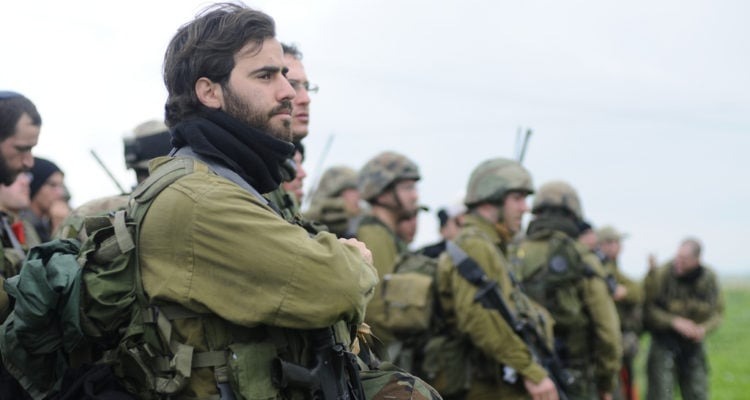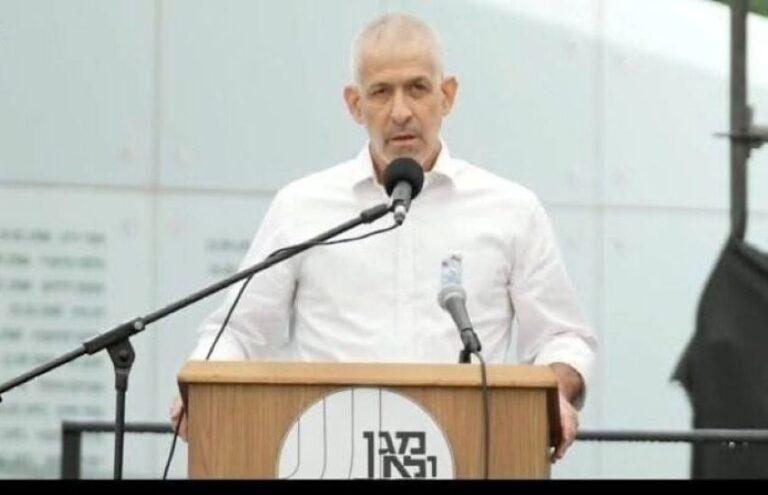Alfredo Lopez and his wife Marian were asleep when the first thundering blast jolted them awake. Moments later, a second boom, much louder than the first, shook the bed on the sixth floor of their Miami apartment.
Alfredo rushed to wake his 24-year-old son Michael, urging him to get dressed, before running to the balcony window.
“All I could see was just white dust, very thick. I could barely see the balcony railing.”
The lights cut out and the emergency alarm came on, warning the residents of Champlain Towers South to evacuate. Lopez thought about sneakers, but his hands were shaking so badly he knew he couldn’t tie the laces and settled on sandals with straps.
Marian Lopez was disoriented. The 67-year-old fumbled for shoes as her husband pressed her impatiently.
The Lopez family has lived for two decades on the street side of the condo that’s still partially intact. Alfredo used to joke to his wife she’d have to bury him there.
When he opened the front door that night, half of the building was gone. A jagged five-foot chunk of flooring barely left enough room to escape.
“There was no hallway, no ceiling, no apartments, no walls, nothing.”
The 61-year-old froze in terror, unable to move.
“I was petrified. I really thought, ‘This is it. We are going to die’.”
__
Sometimes, the line between life and death is as seemingly random as an ocean or street view, an odd or even unit. While 126 residents, mostly from the oceanside units, are among the missing nine days later, many others barely escaped. With the elevator collapsed, the survivors descended the cracked stairwell that had separated from the wall, along the way helping neighbors they met for the first time and others they’d known for years, all “joined through this tragedy for forever now,” says Albert Aguero, who helped an 88-year-old stranger to safety.
While their escape felt agonizingly long, it all unfolded in mere minutes. In those perilous seconds, before the world knew of the more than the 22 who perished and the many missing, they were fighting to survive.
“When I opened the staircase door and half the staircase was missing, at that point I know we’re racing against time to all get out as a family,” Aguero said.
___
Down on the first floor, recent college graduate Gabriel Nir had just finished a late night workout and was in the kitchen cooking salmon. The rest of the family would normally be asleep, but his 15-year-old sister had just returned from babysitting and was in the shower, his dad was out of town and his mom had just come home from an event.
They all heard the first thunderous rumble. They knew the building was undergoing construction and had been irritated by the incessant noise, but this felt different.
Sara Nir, their mother, ran to the lobby, asking the security guard if she’d seen anything.
Back in the kitchen, thick, concrete dust came rushing into their apartment from the patio windows near the pool. The ground was shaking as 25-year-old Gabriel ran to the bathroom.
“We have to go now!” he screamed to his sister. They ran to the lobby, where their mother urged the security guard to call 911. The guard couldn’t remember the address so Gabriel phoned.
“Please hurry, please hurry,” he begged.
Outside, he noticed the car deck had caved into the parking garage. Car alarms were blaring, emergency lights were flashing and water was rapidly filling the garage where pipes had burst.
He ran back to the lobby, where the choking dust cloud was making it difficult to see. Residents from upstairs were running out the door screaming, many still in pajamas, one man pushing a baby stroller.
It was getting harder to breathe. The rumbling intensified, as he pushed his mom and sister safely into the street.
“Run, run,” he ordered.
Tiny rocks and bits of debris pelted his head as he turned back to face the image that still haunts him.
“I saw the building turning into a white dust,” he says. “I heard people screaming.”
“I have to go back. I have to make sure everyone’s OK,” he said.
But he knew it was too late.
___
Up on the 11th floor, Albert Aguero stared in disbelief at the gaping holes in the elevator shaft.
Half of the neighboring apartment was sheared off. The power was out. Aguero wondered if it had been struck by lightning. The fit 42-year-old former college athlete was vacationing from New Jersey with his wife Janette, 14-year-old daughter Athena and his 22-year-old son Justin Willis, a college baseball player.
His son thought a plane had crashed into the building, but there was little time to talk as they rushed into the stairwell, wondering if there was enough time to descend 11 painstaking floors. No one panicked or cried.
“There was no time to react. Just make your move.”
Each time they descended another level, they yelled out the floor number, a small victory of survival, one floor closer to freedom.
There wasn’t enough time to look back; instead they frequently called out to each other.
“Justin, are you still there?”
“Babe, are you ok?”
When they reached the fifth floor, Janette heard banging on the staircase. She wrenched open the frozen door and a few more joined them on the stairs, including a younger woman who was clutching an elderly woman.
She asked Aguero and his son to help the elderly woman as they continued their descent. There were some cracks and gaps down the stairwell, but nothing unpassable.
Still, the pace was too much for the woman.
“Don’t worry about me. I’m 88. I’ve had a good life,” she said, trying to wave them on without her.
But Aguero was determined. They were all going to make it out alive. They moved carefully and quickly, no pushing or trampling.
“You’re going to be fine,” he reassured her. “We’re going to make sure you make it to 89.”
__
On the ninth floor, Raysa Rodriguez and her neighbor Yadira Santos huddled in the hallway, along with Santos’ 10-year-old son Kai and their Maltese puppy. They’d already seen that the other half of the building was gone and assumed the stairwells were, too.
She thought their only escape was to wait on a balcony until fire trucks arrived. In the chaos, her brother Fred called — he had rushed to the building and was standing outside. He kept repeating the same urgent warning.
“Get out of there, get out,” he pleaded.
She argued, saying there was no way out, the stairs were gone.
A firefighter grabbed Fred’s phone and uttered a chilling command.
“You need to find a way out.”
They decided to try the stairwell again. When they reached the eighth floor, they found 84-year-old Ada Lopez waiting with her walker. Santos had called to warn her.
Rodriguez rushed ahead to see if there was a way out as the others helped the elderly Lopez down the stairwell, bumping into the Aguero family and Albert Lopez’s clan along the way.
But when Rodriguez reached the flooded parking garage, she turned around.
“I knew being electrocuted was a possibility,” Rodriguez feared.
They rushed back upstairs to the second floor where someone had left their apartment doors open. Outside from the balcony, they flagged down rescue teams outside and a cherry picker brought them to safety.
Back in the stairwell, Alfredo Lopez was panicked. There were no hugs or emotional words. He was miffed that his wife had chosen to wear slippers to navigate their doomsday nightmare.
“What were you thinking,” he yelled.
When they reached the second or third floor, Susana Alvarez from 1006 was knocking on the stairwell door, her 88-year-old neighbor Esther Gorfinkel beside her.
As Alvarez fled her apartment, she’d banged on her neighbors’ doors one last time, using her cellphone flashlight in the darkness. From the wrecked side of the building, she heard screams.
“Help me, help me,” she heard a woman crying.
“There were people alive in there,” she says quietly.
The 62-year-old Alvarez had just had brought her beloved cat Mia to the building a week ago. In a few days, she was planning to move her mother into the condo. Alvarez is the only family member left to care for her mother, who has advanced Alzheimer’s.
As she and Gorfinkel made their way down, Alvarez paused, thinking of Hilda Noriega on the sixth floor. She was like family. They’d spent many holidays together. Noriega and her mother had been best friends since their days in Cuba.
“Can I rescue her, can I go get her?” she thought frantically. “But I had already seen the building, so I kept going.”
Gorfinkel complained they were moving too fast, her knee was giving her terrible pains. Without thinking, Lopez threw her over his shoulder and pressed on.
“The five of us became like a caravan,” he said.
Alvarez couldn’t stop talking about the cat.
“Forget about the cat,” Lopez screamed in a moment of frustration. “We’ve got to get going.”
When they got to the flooded parking garage, one car was on top of another, crushed by a giant slab of concrete.
Alvarez panicked. She was wearing slippers, just like Lopez’s wife. It was too high to climb the rubble onto the pool deck. The Aguero family had just made it onto the pool deck ahead of them, with father and son hoisting Gorfinkel up the rubble.
“I cannot make it,” she thought. Her hands were covered with blood, but she had no scratches, and no idea where it came from.
Days later, Gorfinkel called The Agueros to thank them for saving her life. Alvarez, too, is adamant she wouldn’t have survived without the Lopez family.
“Thanks to him and his son we were able to climb that rubble.”
__
Days later, the Agueros, the Nir and Lopez family and their little ragtag team are all safe. They embrace their children and siblings tighter, knowing many of their neighbors will never return, never hug their loved ones again.
They have no homes. It’s all gone. Clothes, computers, cars, even prescriptions. It’s inconvenient, they say, but it doesn’t really matter. They are alive.
At night, they still hear the screams, and it all comes rushing back.
“The first few days, I had horrible survivor’s guilt,” said Lopez, a deeply religious man.
Gabriel Nir finds it difficult to sleep. He tries to stay busy, to push away the what-ifs.
“It’s like a virus. it just never goes away,” he says regretfully. “I wish I could have done more … these people that are missing, they aren’t coming back.”
His family is crammed into a nearby donated hotel room. His voice is filled with adrenaline, days later, he’s talks as if on fast-forward, clipped and frantic, just like his escape.
“Check on your loved ones … it’s only one life,” he said. “You don’t know what’s going to happen, today, tomorrow, the next hour.”
Alvarez too is filled with grief. Hilda Noriega, her mother’s best friend, is among the dead.
She hasn’t been in a bed since that night, can’t bring herself to crawl under the covers, instead sleeping in a chair.
“The people in the rubble, I could hear them. Some were yelling ‘Help’,” she says.
“That will haunt me forever. I will never forget that.”
(AP)











